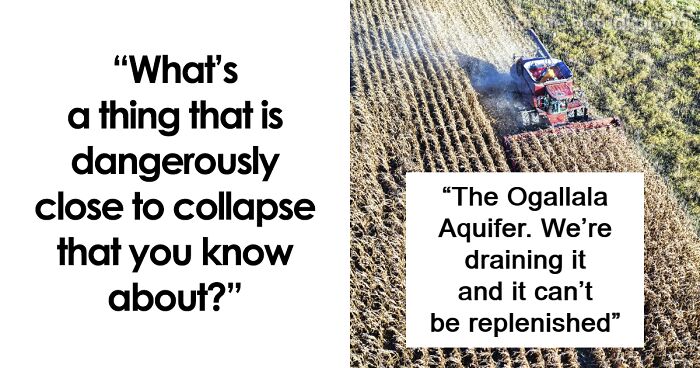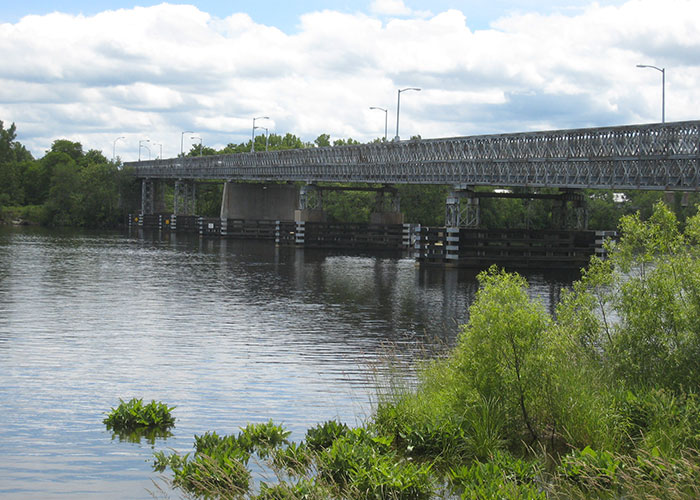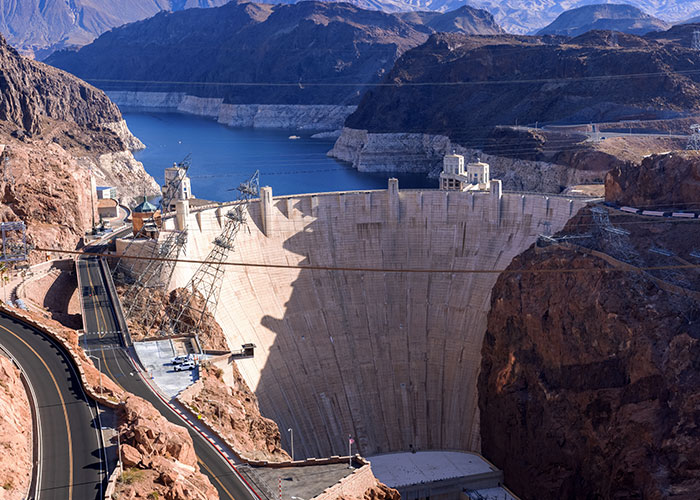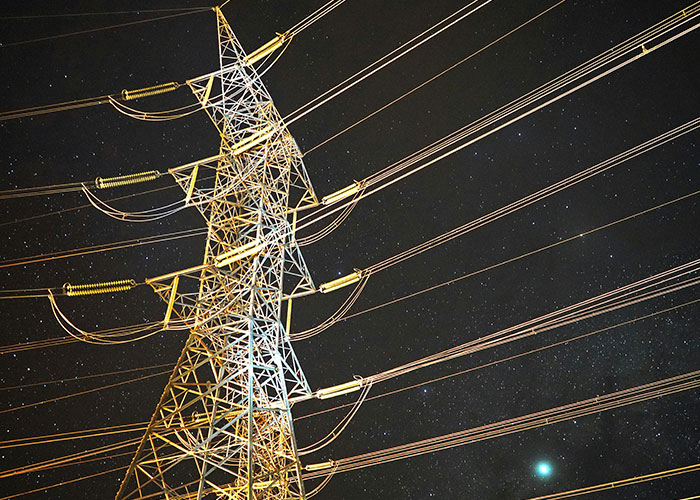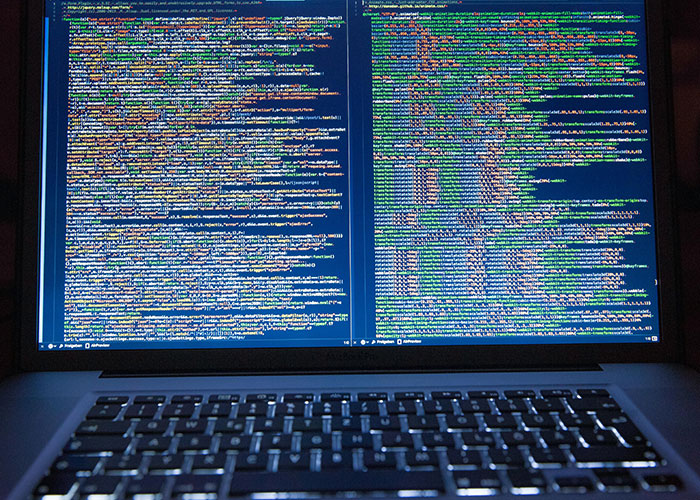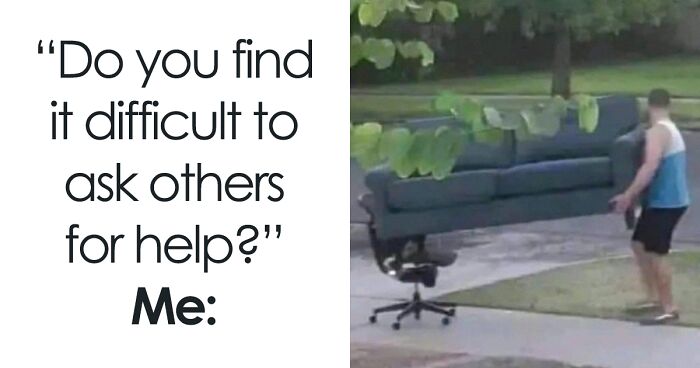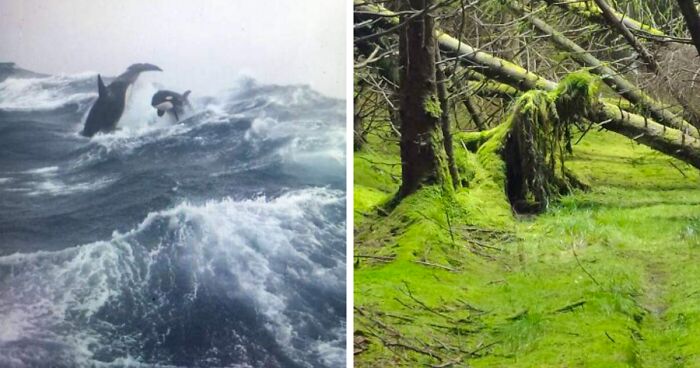Sooner or later, things start falling apart. Buildings, industries, systems, entire ways of thinking—everything. Thanks, entropy! At times, the breakdown might be subtle. It might be slow. It might not be noticeable to everyone at first.
However, there are those with keen eyes and sharp minds who sense the impending doom and maybe even take steps to avoid catastrophe.
Inspired by u/_Fossy_, some of the members of r/AskReddit spilled the tea about all the things that are dangerously close to total collapse that they know of, from infrastructure and education to the middle class and beyond. Check out their insights below, and be sure to add your own thoughts in the comments.
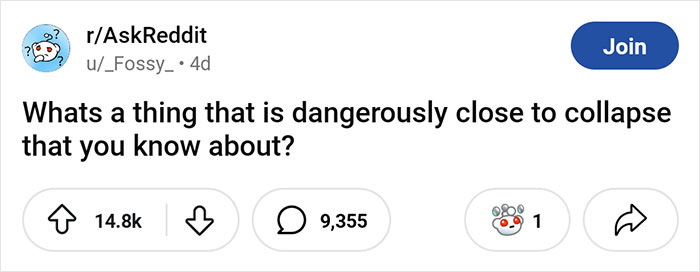
This post may include affiliate links.
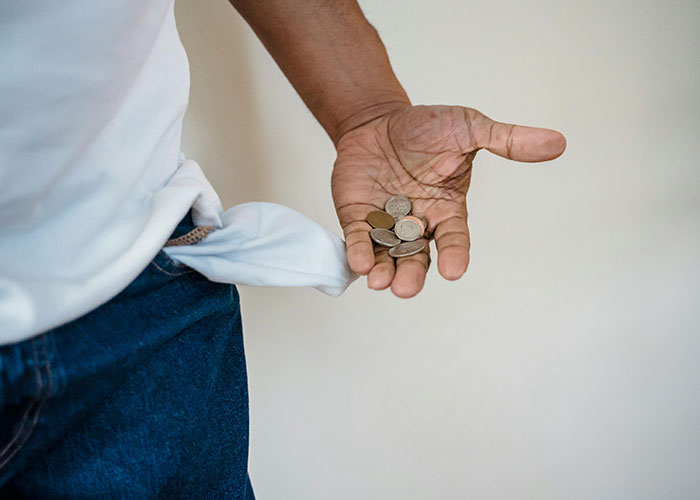 The true American middle class.
The true American middle class.
You are either upper middle class or working poor. The middle class has eroded steadily for at least 30 years.
I dont think that this apply only to America, i think that this is worldwide
 Factual information on the Internet. There's a churn of AI created content that's being taken as fact, and used as the basis for new articles and content. Sifting through information to validate it is already too much effort for many and will only become more difficult.
Factual information on the Internet. There's a churn of AI created content that's being taken as fact, and used as the basis for new articles and content. Sifting through information to validate it is already too much effort for many and will only become more difficult.
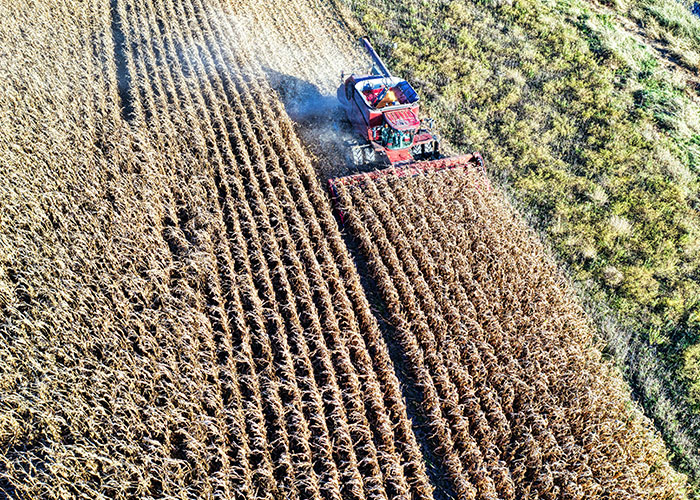 The Ogallala Aquifer. You know how Kansas and Nebraska are known for essentially being endless fields of wheat and corn? Well they do that by drilling wells to one of the world's largest aquifers deep under the Midwest. There isn't enough consistent rain fall in those areas for all those crops, so well water makes up the difference. But, we're draining it and it can't be replenished. Once it's drained, it's Dust Bowl 2.0 and no more large scale farming in the Midwest.
The Ogallala Aquifer. You know how Kansas and Nebraska are known for essentially being endless fields of wheat and corn? Well they do that by drilling wells to one of the world's largest aquifers deep under the Midwest. There isn't enough consistent rain fall in those areas for all those crops, so well water makes up the difference. But, we're draining it and it can't be replenished. Once it's drained, it's Dust Bowl 2.0 and no more large scale farming in the Midwest.
The secret to systems surviving and thriving in any setting is to consistently put in time, effort, and money to maintain them. That way, they’ll operate optimally and won’t collapse in the far-off future. To paraphrase comedian John Oliver: infrastructure might not be sexy, but it’s vital.
According to one US Senate proposal, there is a massive gap between the money that’s spent on infrastructural maintenance and what’s needed for the sake of safety and proper functioning. The proposal notes that, based on the findings of the American Society of Civil Engineers [ASCE], the US would have to spend $3.6 trillion “just to bring our existing Infrastructure into a state of good repair by 2020.”
At the time, the Senate proposal noted that the infrastructure investment gap could be responsible for a loss of $4 trillion of gross domestic product and the loss of 2.5 million jobs. That’s a massive blow to any economy. And the situation may be getting even worse!
The American Society of Civil Engineers states that according to a recent analysis, the total infrastructure investment gap has gone from $2.1 trillion over 10 years to $2.59 trillion. The ASCE notes that the knock-on effects will be devastating. By 2039, it would result in the loss of $10 trillion in GDP, over 3 million jobs, and $2.24 trillion in exports over two decades.
 Antibiotic effectiveness.
Antibiotic effectiveness.
Phage therapy can be used to fight some of the infections caused by antibiotic resistant bacteria, but it has some negative side effects, such as causing the immune system to overreact and it could be difficult to find the exact variety of bacteriophage to treat a particular infection.
 General common courtesy and civilized behavior.
General common courtesy and civilized behavior.
 Bees.
Bees.
We are losing bees at an alarming rate.
As far as important species go, they are top of the list. They are critical pollinators: they pollinate 70 of the around 100 crop species that feed 90% of the world. ~~Honey~~ bees are responsible for $30 billion a year in crops.
[Produce options with Bees](https://bestbees.com/wp-content/uploads/2021/06/produce-with-bees-wf.jpeg)
[Produce options without Bees](https://bestbees.com/wp-content/uploads/2021/06/produce-without-bees-wf.jpeg)
When the Bees are gone, we will shortly follow.
A big part of this in the US is lawn culture. Everyone wants a flat green field or green grass and no weeds. The problem is that those weeds are the flowers that native pollinators depend on. Most bee species are solitary and don't build hives to store honey. I get county code enforcement called on me all the time because I don't mow my lawn when the native wildflowers start blooming. I would rather have a bunch of busy little bees flying around my yard than have a boring flat green field. I'm lucky that I don't have an HOA, because some them don't allow the native wildflowers even if they are in a garden area, because they consider them weeds that could spread into the perfectly manicured lawns of other homeowners.
Poor infrastructure affects everyone. “When we fail to invest in our infrastructure, we pay the price. Poor roads and airports mean travel times increase. An aging electric grid and inadequate water distribution make utilities unreliable,” the ASCE says.
“Problems like these translate into higher costs for businesses to manufacture and distribute goods and provide services. These higher costs, in turn, get passed along to workers and families. By 2039, America’s overdue infrastructure bill will cost the average American household $3,300 a year, or $63 a week.”
 Publicly traded companies constantly being like "we did good not great. More money next quarter. Oh that's good not great. Even more money next quarter" in the 4 years ive been with my company, my production quota has tripled and it's unsustainable. Every quarter has to make more money than the last otherwise it's failing. This is almost every single publicly traded company. Corners being cut, profits maximised, employees compromised. It's endlessly happening
Publicly traded companies constantly being like "we did good not great. More money next quarter. Oh that's good not great. Even more money next quarter" in the 4 years ive been with my company, my production quota has tripled and it's unsustainable. Every quarter has to make more money than the last otherwise it's failing. This is almost every single publicly traded company. Corners being cut, profits maximised, employees compromised. It's endlessly happening
 Honestly, the education system feels like it's barely holding on.
Honestly, the education system feels like it's barely holding on.
I worked for a district that had a 50% turnover rate for teachers in years 1-5. They were the highest paying district in the area. Staff were leaving primarily because of student behavior. I worked in the pre-kindergarten class and lasted five years. I had kids destroy my classroom, run away, open defiance with no parent or admin support, throw chairs at me, and completely stop any teaching. Out of 9 classes, everyone had at least one student like this and most had 3-4. A colleague had her pinkie fractured and her knee dislocated (two separate incidents) by the same student. These students were usually returned to the classroom the same day. When I switched districts, it was a bit better. I only had one or two of the students each year. After 13 years of teaching, I finally left.
Generally speaking, many people don’t give a damn about systems until they start breaking down and affecting their lives in a negative way.
For example, many folks won’t start worrying about exercise and healthy food until they get a health scare. Nor does your average driver care much about road maintenance until they hit a series of potholes, nor your resident worry about plumbing until there's a leak. Similarly, a hands-off manager might not notice the signs that their team is burning out until it’s too late.
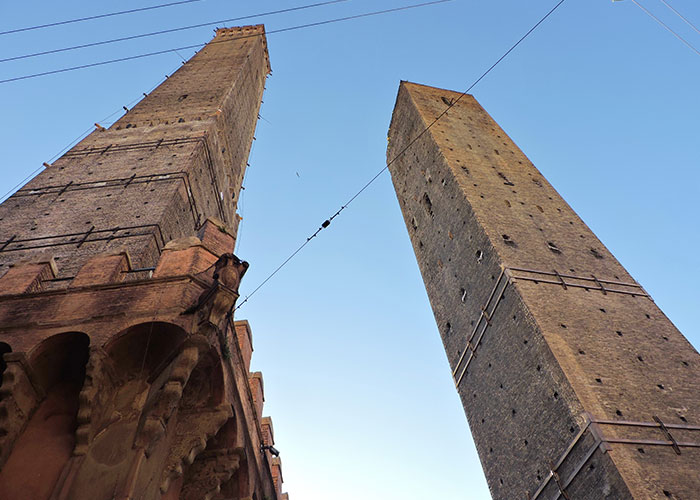 The Garisenda -- one of two remaining 12th century towers in Bologna, Italy.
The Garisenda -- one of two remaining 12th century towers in Bologna, Italy.
I saw them in April. It looks pretty ridiculous to be honest. They have the area blocked off by some shipping containers because that towers probably going to fall any day. It looks like there are some half-hearted restoration attempts happening but no idea what their plan is...
The tower will not collapse. It would have but they already started an enormous plan to stabilise it from further oscillations using some of the scaffolding used in the past to do the very same thing with the leaning tower of Pisa (which was collapsing). By the end of 2024 the Garisenda will be stabilised and in 2025 the adjacent Torre degli Asinelli re-opens to the public again. You can read about this here: https://www.ilpost.it/2024/08/05/lavori-garisenda-bologna/
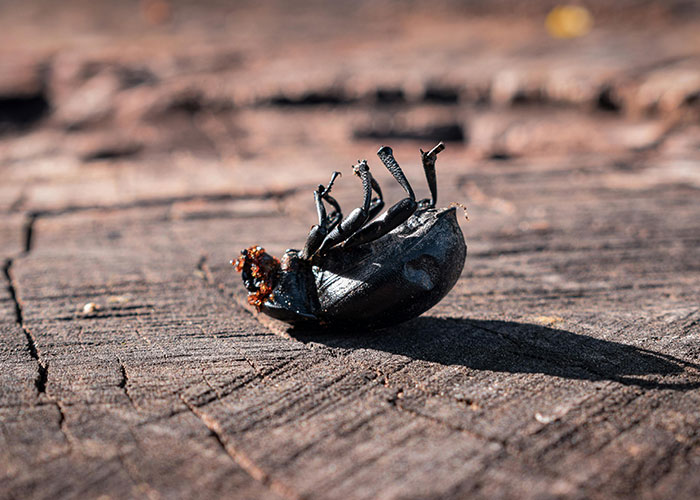 The food chain. I’m still amazed no one is talking about the fact that insect biomass has declined by ∼47% and abundance declined by ∼61.5% over the last 35 years. In some areas it’s measured 75% decline in a single generation.
The food chain. I’m still amazed no one is talking about the fact that insect biomass has declined by ∼47% and abundance declined by ∼61.5% over the last 35 years. In some areas it’s measured 75% decline in a single generation.
This “insect apocalypse” is…very bad. Don’t just take my word for it:
> Indeed, most biologists agree that the world has entered its sixth mass extinction event, the first since the end of the Cretaceous Period 66 million y ago, when more than 80% of all species, including the nonavian dinosaurs, perished.
https://www.pnas.org/doi/10.1073/pnas.2023989118
Especially since we are being told insects are the protein source of the future as we need to reduce our global footprint.
 The education system. We have maybe 10 more years before a whole section of teachers retires, and then we’re absolutely screwed. 50% of teachers quit within the first 5 years, and that statistic is much higher for SPED teachers. We aren’t going to have anyone to work in the schools. Get ready for your kids to be “taught” by an online program with a person who babysits 50 kids at one time and has no training. It’s going to get bad fast, even faster in bad union states. And if you have a kid with a lot of support needs? Truly I don’t know what they’ll do. I work with that population and we currently are missing two teachers and 3 others are on emergency permits. It’s a huge problem and keeps getting worse because the pay is so bad that no one wants to work with these students. I went to the hospital on Friday from a bite from a student (truly a manifestation of his disability) who desperately needs a 2:1 but the district is making it impossible. I barely get to teach cause I’m putting out fires all day.
The education system. We have maybe 10 more years before a whole section of teachers retires, and then we’re absolutely screwed. 50% of teachers quit within the first 5 years, and that statistic is much higher for SPED teachers. We aren’t going to have anyone to work in the schools. Get ready for your kids to be “taught” by an online program with a person who babysits 50 kids at one time and has no training. It’s going to get bad fast, even faster in bad union states. And if you have a kid with a lot of support needs? Truly I don’t know what they’ll do. I work with that population and we currently are missing two teachers and 3 others are on emergency permits. It’s a huge problem and keeps getting worse because the pay is so bad that no one wants to work with these students. I went to the hospital on Friday from a bite from a student (truly a manifestation of his disability) who desperately needs a 2:1 but the district is making it impossible. I barely get to teach cause I’m putting out fires all day.
It's so hard to get teachers to stay in the field because they get terrible pay for the amount of work. If the state funded more support workers for students with challenging behaviours it would make a lot of difference. Teachers could spend their time teaching and not battling with these behaviours. Or if class sizes were smaller. Either way, many children need diverse learning structures which increases the need for differentiated teaching, which spreads them thin. Also having supportive management is important.
It’s always best to imagine the possible negative consequences that might arise if you do nothing in terms of maintenance, and then strive to consistently put in the effort to avoid the worst-case scenarios. This strategy might not be perfect, but it’s down-to-earth and very grounded. Incremental maintenance is incredibly powerful. And it sure beats panicked rushing about when things start to fall apart before your eyes.
What infrastructure projects, industries, and systems have you personally seen collapsing in your local areas, dear Pandas? Is anything being done about it? How would the collapse affect you personally? Let us know in the comments.
 The red supergiant star, Betelgeuse. It's speculated to soon be going to or have already undergone a core collapse supernova but the light of the explosion hasn't yet reached us. It will shine as bright as a full moon for a year when its light reaches Earth, casting its own shadows even. The radius of the supernova is just out of harm's reach, but wild animals tend to use the moon to help them navigate at night, and scientists are concerned that wildlife all over the globe may confuse this supernova with the moon, potentially disrupting the ecosystem.
The red supergiant star, Betelgeuse. It's speculated to soon be going to or have already undergone a core collapse supernova but the light of the explosion hasn't yet reached us. It will shine as bright as a full moon for a year when its light reaches Earth, casting its own shadows even. The radius of the supernova is just out of harm's reach, but wild animals tend to use the moon to help them navigate at night, and scientists are concerned that wildlife all over the globe may confuse this supernova with the moon, potentially disrupting the ecosystem.
 The Florida citrus industry -- specifically oranges. There is a fungus that is spreading and infecting groves across the state. Unfortunately, we have no way to kill the fungus. The only solution is to cut down all citrus trees within a certain radius of an infected tree. Many farmers are choosing to sell their farm rather than try to start all over.
The Florida citrus industry -- specifically oranges. There is a fungus that is spreading and infecting groves across the state. Unfortunately, we have no way to kill the fungus. The only solution is to cut down all citrus trees within a certain radius of an infected tree. Many farmers are choosing to sell their farm rather than try to start all over.
They're having a similar problem with bananas. The likely solution may be to abandon the current variety grown everywhere and switch to others.
 A month ago I was at my grandparents' house. For an inheritance issue they called an architect. The first thing he told them is that they can no longer live in the house, because it is at risk of collapse. That night nobody slept.
A month ago I was at my grandparents' house. For an inheritance issue they called an architect. The first thing he told them is that they can no longer live in the house, because it is at risk of collapse. That night nobody slept.
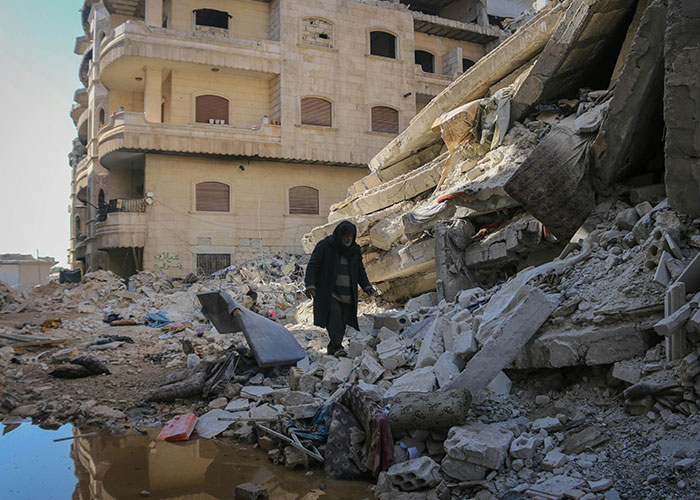 World peace, seriously we are on the brink of some heavy s**t coming our way and the stakes have never been higher (nukes, chem, bio weapons) just overall fuckery
World peace, seriously we are on the brink of some heavy s**t coming our way and the stakes have never been higher (nukes, chem, bio weapons) just overall fuckery
I remember the fall of the Berlin Wall, and how much it meant to so many people. The Scorpions even wrote ”Winds of Change", one of the most beautiful songs ever written, because of it. I remember hearing that song for the first time and thinking about how lucky we are to finally ending the threat of nuclear apocalypse. Now when I hear that song it just makes me feel sorry for the new generation. There will always be politicians that want over peace 😔
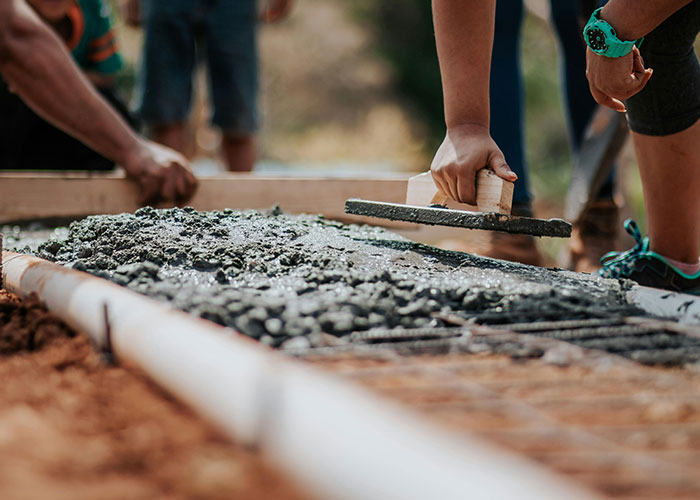 There's a waste product of burning coal called fly ash. We use it in concrete. It makes the concrete better and cheaper. Nobody is building new coal power plants, and old ones are shutting down. It's getting harder and harder to source the ash. If we have to source it from far away, like China, the transportation costs erase the cost saving. We can get the same concrete with just cement and added chemicals but it's more expensive. In ten years we probably won't be using it at all.
There's a waste product of burning coal called fly ash. We use it in concrete. It makes the concrete better and cheaper. Nobody is building new coal power plants, and old ones are shutting down. It's getting harder and harder to source the ash. If we have to source it from far away, like China, the transportation costs erase the cost saving. We can get the same concrete with just cement and added chemicals but it's more expensive. In ten years we probably won't be using it at all.
It's a really minor thing that will have far reaching consequences. Architects and engineers will probably look at ways to reduce concrete in their buildings as the costs increase. It's not likely to impact residential, but big downtown architecture is sure to be affected.
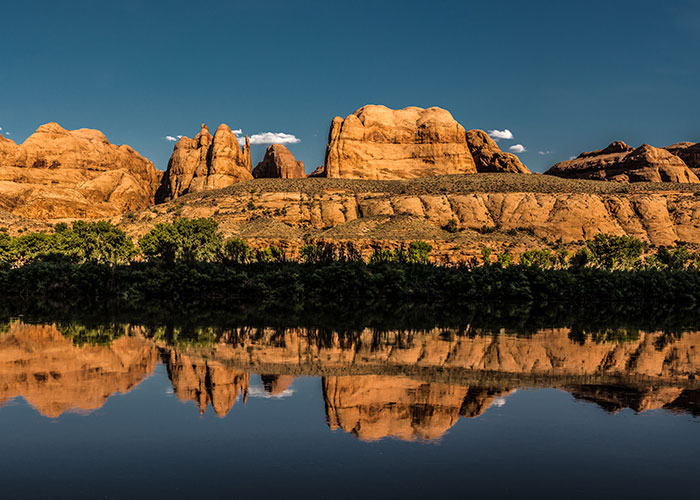 The Colorado river as the main water supply for 3 states with major cities.
The Colorado river as the main water supply for 3 states with major cities.
 Abundant water and food. I think things will hold up ok through most of our lives, but sh**s going to get grim in the next couple generations.
Abundant water and food. I think things will hold up ok through most of our lives, but sh**s going to get grim in the next couple generations.
 Health care in the U.S.
Health care in the U.S.
I'm not talking about paying for health care in the U.S. I think that's fixable. (You can cut the costs by 30% by making it all covered by Medicare For All.)
I'm talking about actually having enough physicians, nurse practitioners, and physicians assistants to treat everyone.
Burnout has gotten a lot worse in the U.S. Almost every physician I know is talking about retiring within five years or at least cutting back dramatically.
The big problems:
1. Not enough medical schools / residency programs to train physicians. My hospital is in need of just about all specialties. Pre-Med programs remain as a weed-out for medical schools, which just means we need more medical schools. We make up for the lack of them by importing physicians from other countries. We need more medical schools and weed out a lot less potential graduates. PreMed undergraduate courses include Calculus, Biology, Chemistry, Biochemistry, Organic Chemistry. I'm not saying any of them need to be removed. Just make enough medical schools that the medical schools will take B's in these courses than require almost perfect GPAs for admissions. I can guarantee that almost no physician uses any of these courses in their day to day practice of medicine. If they did, it would be required in their continuing medical education, which it is not.
2. Too much paperwork. Too much hoops we have to go through on a regular basis. Not just the hundred+ hours of continuing education, the quarterly tests to keep our board certifications up to date, the every two year Basic Life Support / Extended Life Support classes we have to take, Now there is mandatory education for opiod abuse, child welfare, and God only knows what else. Also every two year licensing by your state medical board, DEA certification, etc.
3. Too much competition in an area (!), forcing physicians to compete with each other and therefore burning us out faster. It also means more duplication of effort in an area.
4. Most physicians now work for health networks / big business, which means less leniency when we need something. ie: need to take a day off? You need to put it in the calendar 3 months in advance. You want to buy a stethoscope? It counts as part of your tech purchase for the year. Yes, a stethoscope (not an electric one) is considered tech, just like a phone or computer.
5. Patients have gotten a heck of a lot more demanding, and aggressively so. Everyone Googles up their problems and thinks they have the most rare BS disease. No one wants to listen to their physicians advise and just give time to see if things get better on their own. And if the physician doesn't say exactly what the patient wants to here, the patient screams it from every website and review place so everyone else thinks the physician is an idiot. You don't like what I say? Please go elsewhere. I don't have time for your BS and the fact that you think you are the 1 in 10,000,000 20-year-olds who actually has a congenital cause of heart attack at your age.
BTW: I see #5 on Reddit almost every day. I sometimes comment about it and get downvoted to oblivion. Now I just sigh and move onwards. I won't convince people that unnecessary testing is (almost certainly) not going to make them better and more than likely cause more anxiety when a result comes back not exactly what they expected.
P.S. Sorry for the rant. Just a burnt out physician taking a couple minutes off before getting back to work on a Sunday morning. Cut me a break. I've been working 14 days in a row now. Most weeks not this bad, fortunately.
TLDR all of it, but the gist from skimming it is that it's a similar situation as in Australia. Too many staff getting burned out and leaving the profession and not enough incentives for engaging new recruits. For paramedics, many ambulances are being 'ramped up' at hospitals for hours because there aren't enough doctors to admit the patients. An elderly man died yesterday because it took four hours for an ambulance to get there because of that issue in conjunction with 50 crews being on sick leave. The whole system is broken and politicians agree, but aren't putting things in place quickly enough for any repair to have an impact.
 The Amazon
The Amazon
To some degree it generates its own weather patterns with the vast amounts of water evaporated into the atmosphere from leaves. Deforestation is putting it close to a tipping point where it can no longer maintain those patterns. Once reached, the feedback loop is likely irreversible.
Random Safety Tip: First dates (with someone you don’t already know and trust) should always be someplace public with cameras like a coffee shop. Trust your gut if something feels off.
Manana Man, it's almost impressive how well worded your idiotic opinions are. Do you have some sort of magic padded helmet, or have you just spent so much time hanging around in echo chambers of like minded individuals you can no longer tell fact from fiction? Yes, the earth will be fine on a long enough scale...humanity, and every living thing currently residing on the planet, will not be. We're living through the 6th mass extinction, right now. The effects of Co2 were first observed in 1854, being that higher concentrations of Co2 in the air caused it to get hotter, faster, and retain that heat for longer periods of time. This observation was treated as fact, and built upon for NINETY years....up until the end of world war 2 when cars became synonymous with freedom. The planet is not well balanced, it's DELICATELY balanced, and humans have f****d that balance up. it's not a point of debate to anyone but idiots like you who think the sun and the moon are the "same person!"
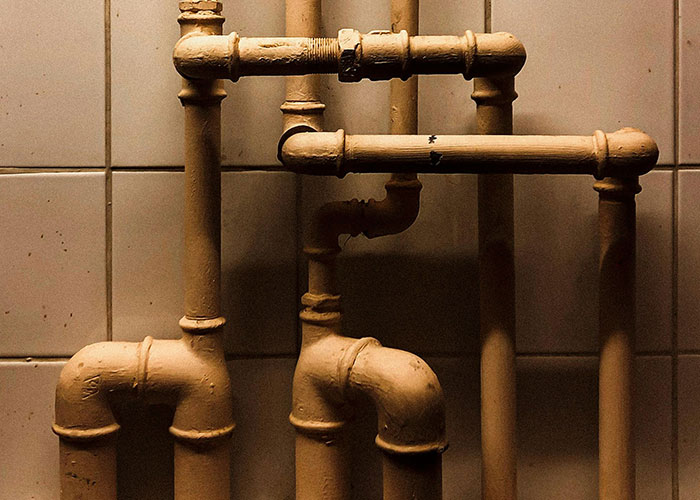 Literally all infrastructure in North America. The majority of underground infrastructure (pipes, water lines, sewer systems) has been completely ignored in terms of maintenance, and has been TOTALLY ignored in terms of budgeting replacing the assets.
Literally all infrastructure in North America. The majority of underground infrastructure (pipes, water lines, sewer systems) has been completely ignored in terms of maintenance, and has been TOTALLY ignored in terms of budgeting replacing the assets.
There are towns that have coming bills of 10s-100s of millions (not even mentioning larger cities) that have saved approximately 0% of the required amount by constantly pushing out the life time estimation of the assets.
lots and lots of bills are coming due shortly if the engineering estimates are accurate and very few towns have saved anything for this scenario.
We're basically living in a world where no one wants to be the person to say that we need to save money for long term planning, and instead everyone hopes things don't fail while they are leading and they can pass the buck.
My city is currently re-doing the sewer system since its old, was made when we had maybe a third of our current population, and is literally terracotta. Even that (very essential) task had to go through a ton of loopholes to get approved.
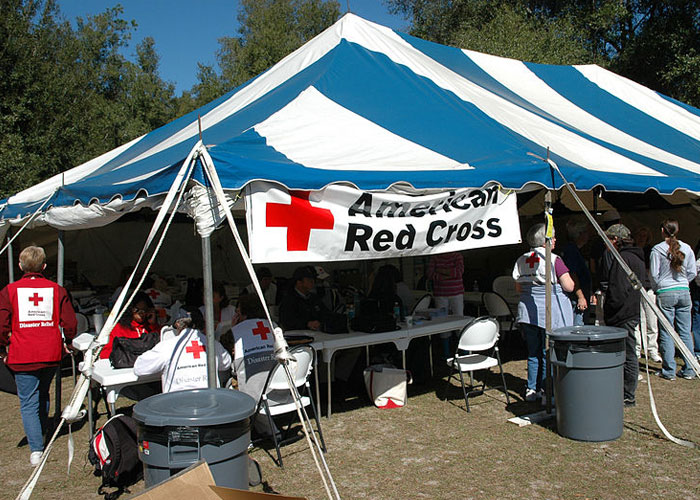 The US blood supply is still hard hit from COVID and the American Red Cross isn’t lying when they say we’re in an emergency platelet shortage so if you can donate platelets, please donate.
The US blood supply is still hard hit from COVID and the American Red Cross isn’t lying when they say we’re in an emergency platelet shortage so if you can donate platelets, please donate.
There are some archaic rules about donation that desperately need to change if we are ever going to have enough. There are rules that were needed when first implemented (ie. AIDS epidemic) that aren't necessary anymore. Sometimes it's because the situation has changed but mostly because of the technological advances. There are many people who are blocked from donating for nonsensical reasons who would gladly do it regularly
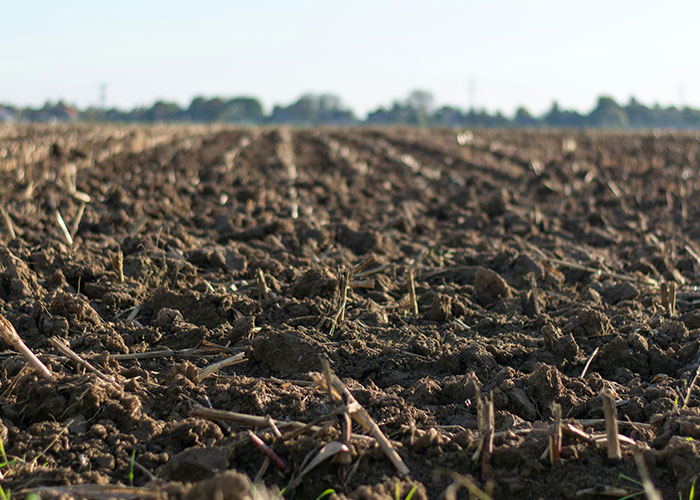 Well, top soil is getting super depleted. What used to be yards deep fertile soil is down to inches. Washed or blown away due to agriculture and irrigation.
Well, top soil is getting super depleted. What used to be yards deep fertile soil is down to inches. Washed or blown away due to agriculture and irrigation.
 Internet security. Both keeping our information safe & keeping the internet lights on. Some predict that a 24 hour worldwide shutdown could be cataclysmic & this whole system is being held up by toothpicks.
Internet security. Both keeping our information safe & keeping the internet lights on. Some predict that a 24 hour worldwide shutdown could be cataclysmic & this whole system is being held up by toothpicks.
Well a botched security update recently came quite close to doing exactly that...
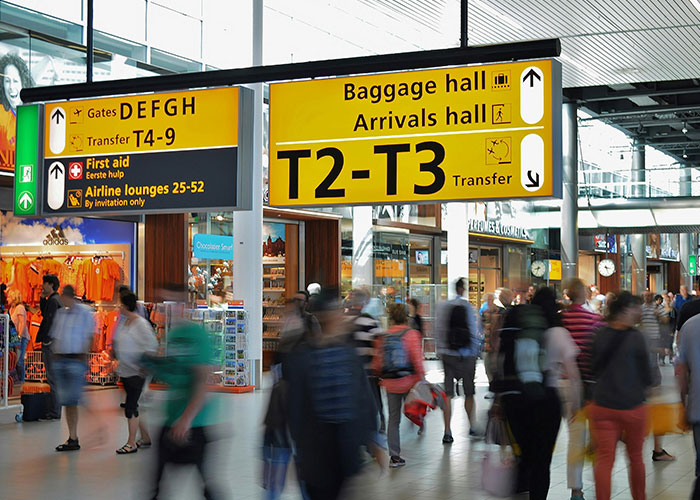 Human migration patterns will put a massive strain on various countries around the globe as the environment changes
Human migration patterns will put a massive strain on various countries around the globe as the environment changes
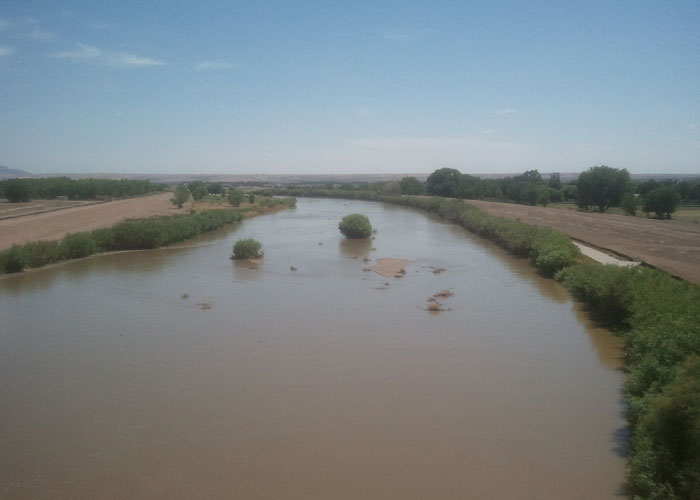 The Rio Grande levees in El Paso's Upper Valley are old and need repair, and will fail in a major flood. The low lying suburbs in the Upper Valley were recently deemed to be in a FEMA flood plain.
The Rio Grande levees in El Paso's Upper Valley are old and need repair, and will fail in a major flood. The low lying suburbs in the Upper Valley were recently deemed to be in a FEMA flood plain.
Same with New Orleans. If another category 4 comes, there are levees that will fail.
 The young childcare industry. Increased regulation to make facilities safer (a very good thing!) had the unintended consequence of increasing costs for owners. You now need more teachers who have training and certification, not to mention the patience and stamina to work with young kids all day. The pay is comparable to fast food without the benefits. Owners have to find a way to pay teachers enough to retain them while keeping costs down so parents can afford to send their kids. It's damn near impossible without an infusion of government investments.
The young childcare industry. Increased regulation to make facilities safer (a very good thing!) had the unintended consequence of increasing costs for owners. You now need more teachers who have training and certification, not to mention the patience and stamina to work with young kids all day. The pay is comparable to fast food without the benefits. Owners have to find a way to pay teachers enough to retain them while keeping costs down so parents can afford to send their kids. It's damn near impossible without an infusion of government investments.
Here's a radical idea. Lets make it possible for a family to live on one income again. I know this goes against the business model to keep wages low and profits high but it might actually make it possible to sustain the population.
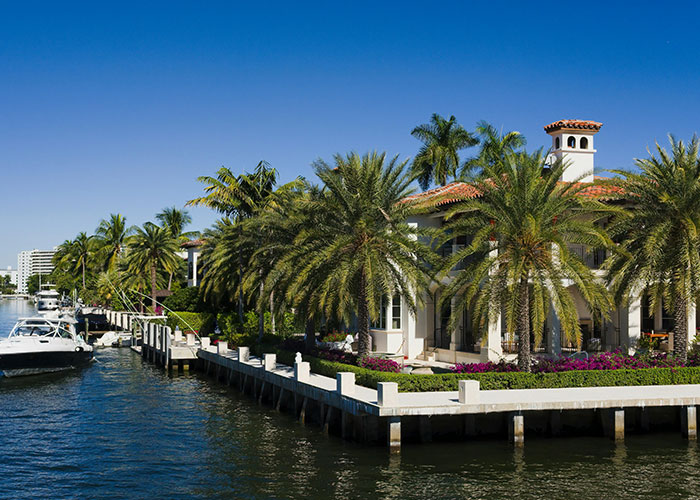 Housing prices along the coast in Florida. Most of the state is barely three feet above sea level and flooding is getting worse and worse every year. In fifty years, sea level is going to be much more inland than it is now and no amount of "beach restoration" is going to help it.
Housing prices along the coast in Florida. Most of the state is barely three feet above sea level and flooding is getting worse and worse every year. In fifty years, sea level is going to be much more inland than it is now and no amount of "beach restoration" is going to help it.
My aunt and uncle saved their entire lives to retire, moved to a house on the IC in Flagler, and got two 500-year floods in just a couple of years. People who think that it isn't a problem until the coast is literally "under water" are nuts. Now my aunt and uncle are desperately trying to move, but no one wants to buy their house.
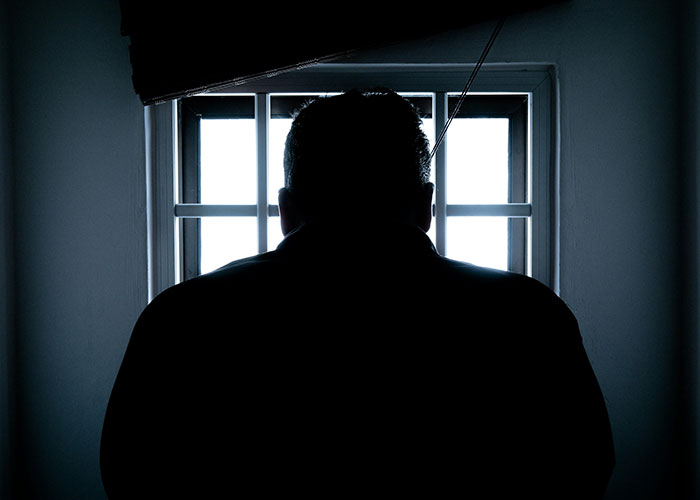 The UK criminal justice system Edit: For any non Brits passing through. The new gvt has had to announce it's releasing prisoners early because it's got no space for incoming suspects on remand and new convicts. The last gvt shut like half the courts, the remaining ones are falling apart and understaffed. There aren't enough judges so there's a two year backlog of serious cases. The junior end of the profession are so poorly paid they've been on strike repeatedly. And let's not forget the police have basically stopped investigating shoplifting and other smaller crimes. This after 14 years of the "law and order" party being in power. Thank goodness the former chief prosecutor is now prime minister so maybe there's a hope of fixing it.
The UK criminal justice system Edit: For any non Brits passing through. The new gvt has had to announce it's releasing prisoners early because it's got no space for incoming suspects on remand and new convicts. The last gvt shut like half the courts, the remaining ones are falling apart and understaffed. There aren't enough judges so there's a two year backlog of serious cases. The junior end of the profession are so poorly paid they've been on strike repeatedly. And let's not forget the police have basically stopped investigating shoplifting and other smaller crimes. This after 14 years of the "law and order" party being in power. Thank goodness the former chief prosecutor is now prime minister so maybe there's a hope of fixing it.
I'm 77, and what I'm hearing from family and friends in the same age-zone is : I'm glad I won't be here to see it."
I'm 61 and hoping I won't. I just might though.
Load More Replies...Things that are dangerously close to ending? Add to that list the cities built on active volcanoes and major fault lines. Goodbye Naples, goodbye Arequipa, goodbye San Francisco, goodbye Los Angeles, goodbye Legaspi, goodbye Goma.
ASAP, along with Bye Felicia. Shills, right wing shills.
Load More Replies...I'm surprised nobody mentioned privacy. We need to fight hard and long to protect that. No privacy, no freedom.
Most of these concerns are echos of the past and we are all still here. For every improvement we make today, there will be an unforseen consequence in the future.
Too much c**p material written by scientific / political illiterates. Entertaining as always, though — thank you, Jonas.
I think that there is tooo much american info in a full world with just as many problems but you don't hear them whining as much as the americans.
I'm 77, and what I'm hearing from family and friends in the same age-zone is : I'm glad I won't be here to see it."
I'm 61 and hoping I won't. I just might though.
Load More Replies...Things that are dangerously close to ending? Add to that list the cities built on active volcanoes and major fault lines. Goodbye Naples, goodbye Arequipa, goodbye San Francisco, goodbye Los Angeles, goodbye Legaspi, goodbye Goma.
ASAP, along with Bye Felicia. Shills, right wing shills.
Load More Replies...I'm surprised nobody mentioned privacy. We need to fight hard and long to protect that. No privacy, no freedom.
Most of these concerns are echos of the past and we are all still here. For every improvement we make today, there will be an unforseen consequence in the future.
Too much c**p material written by scientific / political illiterates. Entertaining as always, though — thank you, Jonas.
I think that there is tooo much american info in a full world with just as many problems but you don't hear them whining as much as the americans.

 Dark Mode
Dark Mode 

 No fees, cancel anytime
No fees, cancel anytime 


